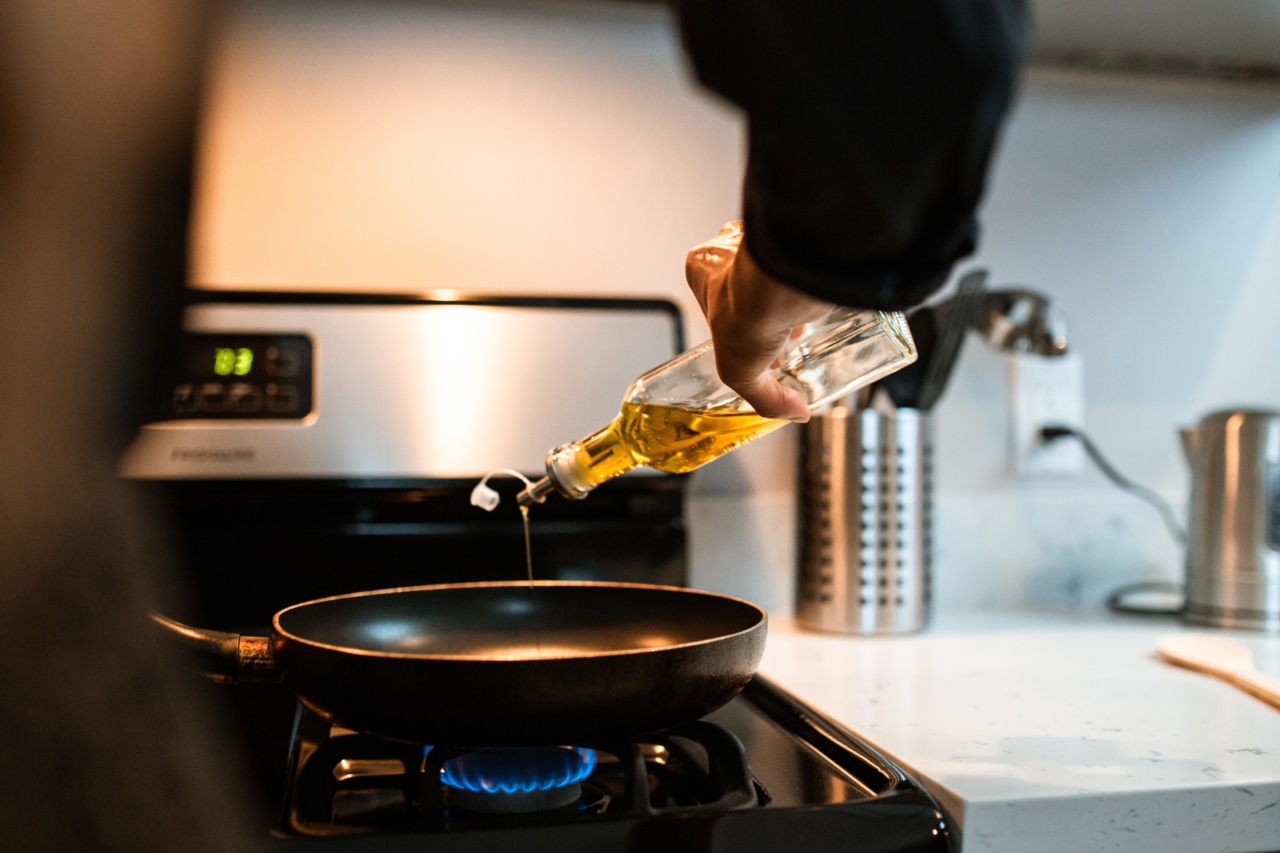Olive oil has long been revered as one of the healthiest and most versatile cooking oils, and for good reason. Not only does it offer a delicate and delicious flavor to a variety of dishes, but it also boasts numerous health benefits.
When it comes to frying, using olive oil as your cooking oil of choice can have several advantages over other types of oils. In this article, we will delve into why olive oil is the healthier choice for frying and explore its unique properties that make it stand out among other cooking oils.
The Composition of Olive Oil
Before we dive into the benefits of olive oil for frying, it’s essential to understand its composition. Olive oil is predominantly made up of monounsaturated fatty acids (MUFAs), which are considered heart-healthy fats.
These MUFAs are less prone to oxidation and rancidity compared to polyunsaturated fats, making olive oil a stable and durable oil for high-heat cooking methods like frying.
High Smoke Point
The smoke point of an oil refers to the temperature at which it starts to break down and produce smoke.
Frying typically requires high temperatures, and using an oil with a low smoke point can result in the release of harmful compounds and a burnt taste. Olive oil, particularly extra virgin olive oil, has a relatively high smoke point of around 375°F (190°C), making it suitable for frying without compromising its nutritional value or taste.
Rich in Antioxidants
Olive oil is renowned for its abundance of antioxidants, such as vitamin E and phenolic compounds.
These antioxidants help protect our bodies against oxidative stress and reduce inflammation, both of which are believed to play a significant role in chronic diseases like heart disease and certain types of cancers. When used for frying, olive oil’s antioxidants can help mitigate the formation of harmful compounds that can arise from the high heat and ensure the preservation of the oil’s nutritional properties.
Reduces the Absorption of Oil
One common misconception about frying foods is that they become excessively greasy and calorie-laden. However, when olive oil is used for frying, it can help reduce the absorption of oil into the food being cooked.
The high temperatures utilized in frying immediately sear the outer layer of the food, creating a barrier that prevents excessive oil absorption. This results in a lighter and less oily final product, making olive oil a healthier choice overall.
Improves Nutrient Retention
Some nutrients found in foods are heat-sensitive and can be easily lost during the cooking process. However, using olive oil for frying can help improve the retention of certain nutrients in food.
The monounsaturated fats in olive oil facilitate the absorption of fat-soluble vitamins like vitamin A, D, E, and K. The gentle cooking process of frying with olive oil helps maintain the nutritional integrity of the food, allowing you to maximize the health benefits it provides.
Protects Heart Health
Heart disease is one of the leading causes of death worldwide, and our cooking oil choices significantly impact our cardiovascular health.
Olive oil has long been associated with heart-healthy benefits due to its favorable fatty acid profile and rich antioxidant content. Regularly using olive oil for frying instead of oils high in saturated or trans fats can help reduce bad cholesterol levels (LDL) and lower the risk of heart disease.
Enhances Flavor
Aside from its numerous health benefits, olive oil also enhances the flavor of fried dishes. It lends a distinct, fruity taste to foods, making them more palatable and enjoyable.
The flavor profile of olive oil complements a wide range of ingredients, from crispy vegetables to tender meats. By using olive oil for your frying needs, you can elevate the taste of your dishes without relying on unhealthy flavor enhancers or excessive salt.
Versatility in Cooking
While we’ve primarily focused on frying, olive oil is remarkably versatile and can be used in various cooking methods. It is suitable for sautéing, roasting, grilling, and even as a dressing for salads and marinades.
This versatility makes olive oil a staple in the kitchen, allowing you to experiment with different flavors and cooking techniques while reaping its health benefits.
Environmental Impact
Choosing olive oil for frying not only benefits our health but also has a positive impact on the environment. The production of olive oil generally involves fewer resources and has a lower carbon footprint compared to other cooking oils.
Supporting sustainable and eco-friendly practices can help preserve our planet for future generations.
Conclusion
Olive oil’s unique composition, high smoke point, rich antioxidant content, and array of health benefits make it an excellent choice for frying.
By opting for olive oil in your frying endeavors, you can protect your heart health, enhance the flavor of your dishes, and ensure nutrient retention. Additionally, you contribute to environmental sustainability while enjoying the culinary versatility of this exceptional oil. Make the switch to olive oil today and unlock a healthier and more enjoyable frying experience!.





























